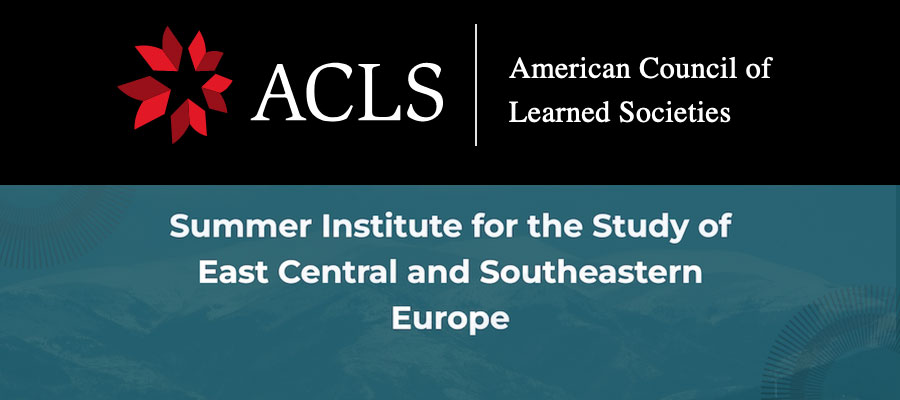Summer Institute for the Study of East Central and Southeastern Europe, Blagoevgrad, Bulgaria, June 13–29, 2024
The Summer Institute for the Study of East Central and Southeastern Europe (SISECSE) is a two-week residential fellowship, that provides scholars of Eastern Europe time and space to dedicate to their own research and writing in a collaborative and interdisciplinary setting. ACLS in partnership with the Centre for Advanced Study Sofia (CAS) will convene leading scholars from Eastern Europe and North America for a two-week residency in Blagoevgrad, Bulgaria from June 1, 2023 to June 15, 2023.
SISECSE will also provide participating scholars with the opportunity to undertake local fieldwork, including archival research, work in museum collections, interviews, site surveys, or other forms of data collection. Fieldwork is not a requirement for participation in the institute.
The program will offer a travel stipend and cover accommodation and per diem expenses for the two-week residency. Institute members will be expected to be in residence and to participate in all planned events for the duration of the institute.
In addition to conducting their own research, scholars will also have the opportunity to participate in small group writing workshops, as well as a series of immersive discussions on a broad topic of shared academic interest.
In 2024, discussions will explore “The Humanities and Interpretive Social Sciences in a Time of Emergency, or Thinking Urgently.” During periods of crisis, whether they are natural disasters, violent conflicts, or global pandemics, the humanities provide critical insights and new perspectives that contribute to our understanding of the human condition, offer solace and reflection, and help us navigate uncertainty. Participants will consider diverse questions: How do the humanities or interpretive social sciences help us make sense of crises and the challenges they present? In what ways can humanistic research foster resilience, empathy, and collective action? How can humanistic scholarship inform policy-making and decision-making processes during emergencies? What distinct perspectives do different fields and disciplines offer?
It is not required or expected that applicant’s research projects are connected to the workshop theme. Thematic discussions are intended for the enrichment of the participants.
Eligibility
- Applicants must have a PhD degree conferred by an accredited university. An established scholar who can demonstrate the equivalent of the PhD in publications and professional experience may also qualify. If the PhD is not conferred by the application deadline, the applicant must submit documentation before April 15, 2024, confirming that the dissertation has been approved.
- The competition is open to scholars in any field or discipline in the humanities or interpretive social sciences pursuing postdoctoral or advanced research in East Central and Southeastern Europe, including Albania, Belarus, Bosnia and Herzegovina, Bulgaria, Czechia, Croatia, Hungary, Kosovo, Moldova, Montenegro, North Macedonia, Poland, Romania, Russia, Serbia, Slovakia, Slovenia, and Ukraine.
- Applicants must have an affiliation—a long-term regular research or teaching appointment—with a university or college in North America (US, Canada, Mexico) or Central/Eastern Europe (see the list above).
- There are no restrictions as to the citizenship of applicants.
- The application must be submitted in English, but the written work produced may be in any language.
